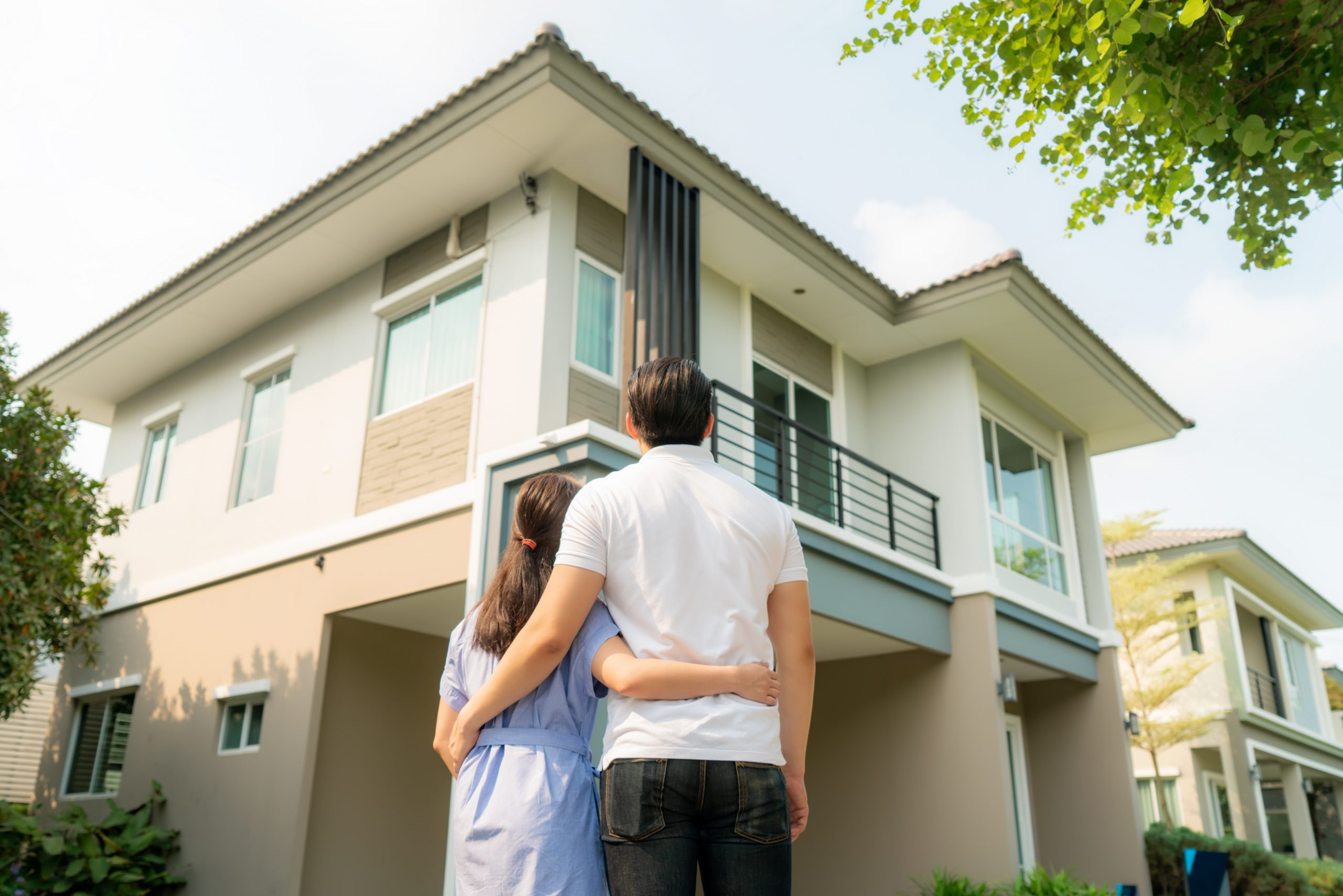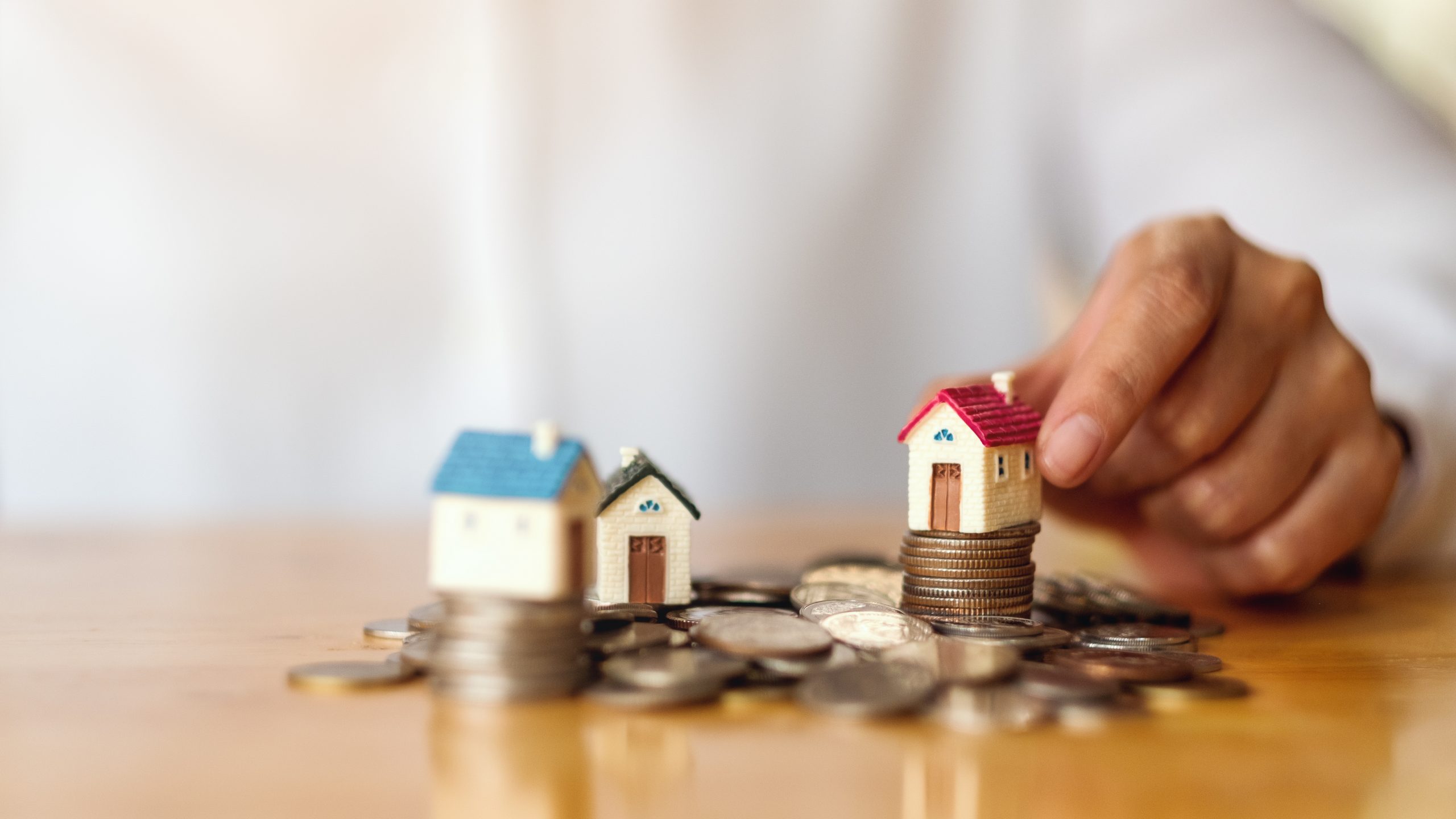
Global Properties
By Property Types
Hot Country

As one of the top Asian economic superpowers, Thailand is considered one of the most potential power-houses in the Asia-Pacific region in terms of economic growth and development.
It's also very liveable too. A growing number of expats are choosing Thailand for longer stays, whether for business, as a retirement home, or for different purposes.
Before you decide to buy real estate in Thailand, you must learn about these:
In short, yes. But it's a little more complicated than that.
According to the property law of Thailand, foreigners are not allowed to own any piece of land, but they can be the owners of structures on Thai soil. You can only own a condominium or apartment unit legally!
Thai law is clear and imposes rules concerning the right to own property belonging to foreigners. The law authorizes the purchase in freehold and proper name of villas or apartments in "condominium developments".

Fully-furnished Thai traditional villa with private swimming pool.
Source: Juwai.asia
There are several options depending on the property you wish to buy. Three types of real estate or property are available for foreigners to purchase under certain conditions: Condominiums, Villas & Houses, and Undeveloped Land.
The first two categories are simpler investments that many foreigners take on with little difficulty. Owning land, however, is more complex, requiring greater levels of research, more involved legal support and a structure that some buyers may be unfamiliar with. If a foreigner wishes to acquire land and build a house, he or she should obtain a long term lease on the land for a period not exceeding 30 years each term.
Want to invest in Thailand? Click Here.

Freehold condominium project in North Pattaya Road.
Source: Juwai.asia
Pros of buying a Condo:
Cons of buying a Condo:
Condos aren't all about a relaxing swim and some tennis in the sun. There are drawbacks as well. Let's look at a few of the downsides to purchasing a condo that should not be overlooked when weighing your options.
Pros of buying a Villa:
Cons of buying a Villa:
There are some inbuilt disadvantages of buying a villa, let’s take a look at some of those –
To understand more in-depth about the pros and cons of buying a villa and condo, check out Condo Vs Villa: Which Thailand Property Should You Invest or Buy?.

Real Estate in Thailand has taken off in the past decade or so with more foreigners wishing to live here or make this country their second home. While many wish to own a house in Thailand, it is important that you consider the following when purchasing a house:
Be aware that many of the problems that do arise when buying a house in Thailand can be avoided early on in the property search. Make sure to delve into relevant regulations and pertinent laws.

Once you have decided which house you are going to purchase, always consult a lawyer before signing any documents. Foreigners may not own a house in their name; however, their Thai registered company may own the house.
There are different forms of business entities in Thailand, and the most commonly used is a Thai Limited Company. There are certain business registration criteria for the limited company.
The Thailand Amity Treaty is also still in existence for Americans and there are also tax considerations so check Corporate Tax in Thailand if you are going to do more than own a house or need a Thai Work Permit. However, in this option, you must bear in mind that the company must carry on a legitimate business in order to be active because inactive companies may be delisted from the Business Department. As a consequence, the assets of the company, including the house, for instance, shall be liquidated.

Villa with 3 bedrooms at Thappraya Road, Pattaya.
Source: Juwai.asia
Once you registered your Thai Limited Company, consult your property lawyer so that they would do a title search and check the contracts before signing. The title search is deemed very important as it is in this procedure that the buyer would ascertain that the seller is the rightful owner of the subject property. Also, note the type of Title Deeds in Thailand.
The following are categories of title deeds in Thailand:
If you are buying a house off-plan, you would need legal advice as to buying in pre-construction projects. There is also the cost of transfer for your condominium and Thailand property taxes. Use the property transfer calculator to check your fees payable. Always consult a reputable firm of attorneys before you embark on the process of buying a house in Thailand.
Transfer of Ownership
In the transfer of ownership of the house, the procedure shall be done at the land office. The land office is the only government authority in Thailand for the administration and completion of a transfer of ownership of a building. The following documents are required for the transfer:
Thai home and official documents related to real estate;
The transfer of ownership of a house is as an immovable property subject to income withholding (personal or corporate income) tax, transfer fees, stamp duty, specific business tax calculated over the registered sale value or appraised value. The government's assessed (appraised) value of a house used by the land office depends among others on location, number of floors, floor space and materials used.

Taxes and fees are something that is not always mentioned when buying a property and you could get a nasty surprise a couple of months after making your purchase in the form of a hefty tax bill.
Whenever a property in Thailand is purchased or sold there are four potential taxes/fees to be paid. Which of these taxes/fees will be applicable depends on the details of the transaction, the seller and the duration of the seller's ownership.
It is also significant to note that most of the fees are calculated relative to the government's "tax assessment value" of the property and this value is usually well below the market value.
| Category | Sale of Freehold Land & Property | Transfer of Leasehold Land | Sale of Building | Liability to Tax |
| Transfer Fee | 2% | N/A | 2% | Seller/Buyer |
| Lease Registration Fee | N/A | 1% | N/A | Lessor/Lessee |
| Specific Business Tax | 3.3% or N/A | N/A | 3.3% or N/A | Seller |
| Stamp Duty | 0.5% or N/A | 0.1% | 0.5% or N/A | Seller |
| Withholding Tax | 1% or 5 - 37% | N/A | 1% or 5 - 37% | Seller |
This is based on the appraised value of the property and is normally shared equally between both buyer and seller, although this needs to be agreed upon by both parties.
This is based on the total rent payable over the lease term and is normally shared equally between the lessor and lessee, although this must be agreed upon by both parties.
Specific Business Tax (SBT) is payable by companies and individuals who have owned the property for less than five years. It is based on the official appraised value or the contracted price, whichever is the highest. An individual may be exempt from SBT if they have used the property as their principal residence and have had their name in the household registration certificate for at least one year.
Stamp Duty is only paid when SBT is not applicable and is based on the official appraised value or the contracted price, whichever is highest.
If you're thinking of having a second property in Singapore, you should check out the additional stamp duty you need to pay here.
If the seller is a company, the WHT on the sale of the property is calculated at 1% of the official appraised value or the contracted price, whichever is higher. If the seller is an individual, the WHT is based on the individual's marginal tax rate (except that the first 100,000 baht is taxed at 5% rather than falling under the tax-free threshold) after deducting from the official appraisal price a standard deduction based on the number of years of ownership.
Once you have acquired the property, there are 2 different types of tax levied on property in Thailand that you need to be aware of 1. Land Tax and 2. Structures Usage Tax.
This is an annual tax levied on land ownership equivalent to just a few Baht per rai for properties held as private residences. For properties held by companies, the tax can be significantly higher.
Under current legislation, the property owner is expected to pay at the local tessaban or local government office every year. However, there is no tax bill sent out and in practice, it is rarely chased up. The problem of unpaid tax liability usually only surfaces when the property is being transferred, and no transfer can go ahead while there are unpaid taxes on the property.
There have also been ongoing parliamentary debates about resurrecting the land tax bill, which would introduce a more general tax on property that would apply to all land and/or any permanent structures built on the land with different tax rates for commercial property, private residences and agricultural land. Owners of undeveloped land will also come under the new taxation.
This only applies to properties used for commercial purposes or rental properties. This is applicable at the rate of 12.5% on the actual or assessed gross rental value of the property. However, this notional value is well below the commercial market rental value.
JA Pro Tip:
| If the house is purchased through a company, you need to consider that corporate tax is higher than personal tax, and the cost of setting up the company has to be considered as part of the initial investment, even if this is relatively modest.
If you wish to purchase property in Thailand using Thai Baht, ensure that your funds are transferred to Thailand in foreign currency and converted to Thai Baht here. The receiving bank will issue a ‘Foreign Exchange Transaction Form’ confirming the transaction for individual inward transfers exceeding 20,000 US$, which is one of the documents you may need in the future if you wish to repatriate funds without incurring tax penalties. Repatriation of investment funds and repayment of overseas borrowing in foreign currency can be remitted freely upon submission of supporting evidence. One of these documents would be the Foreign Exchange Transaction Form mentioned above, or in respect of a foreign currency loan and the loan contract. Remittance of funds without proper documentation could be regarded as income and become liable for tax. |

We must bear in mind that as a foreigner, you can only own a condominium or apartment unit legally. And then the question comes in – Can foreigners get a property loan in Thailand? In short, the answer is YES, foreigners are eligible to apply for a property loan in Thailand.
Foreigners of the following categories can apply for a home loan; Foreigners who:-
If you do not fit in any of the above categories and wish to take a property loan in Thailand, it is still possible but your options become more limited.
In most cases, the general conditions for foreigners taking a property loan are as follows –
(the conditions may vary from bank to bank)
You must do your research to find an appropriate local bank or financial institution to provide loans to you as a foreigner.

Beautiful 3-bedroom home at Pattaya, Chon Buri, Thailand.
Source: Juwai.asia
It is possible for foreigners without a Thai Work Permit or Permanent Residence to get access to financing selected property. The options are usually as follows –
Offshore Mortgages
Few international banks with subsidiaries in Thailand provide offshore mortgages to foreign buyers (from the bank’s home country) to purchase property in Thailand. The applicants do not need to work or live in Thailand but need to have proof of stable income from the bank’s country of origin or selected countries. The banks that offer this option are UOB, ICBC, and Bank of China.
Lending Institution
MBK Guarantee allows applicants from any nationality to apply for loans without having to work or live in Thailand. Applicants may apply for loans using the existing property as collateral.
Other financing solution
You can take a mortgage against property in your country of origin. If you have a fully paid-up property in your home country, this option may be beneficial for you because interest rates in Thailand are relatively higher compared to many other countries. You then can use that loan amount to purchase property in Thailand and pay the monthly instalment in your home country. Especially, if you have proof of income from your home country, this will be the most viable option.
So this information confirms that foreigners can get a property loan in Thailand if they are qualified under the strict conditions of financial institutions.
Find out How much are Property Prices and Rental Yields in Thailand? here.
Search for your ideal home in Thailand or contact us for comprehensive support. Click here